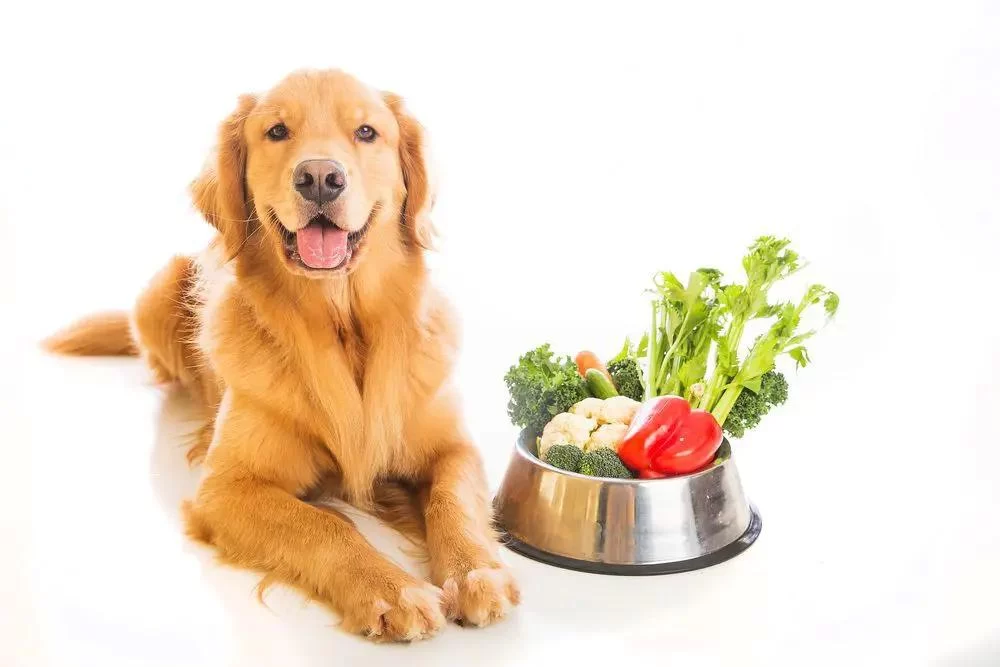Understanding Digestive Issues in Dogs
As a dog owner, there's nothing worse than watching your beloved pet suffer from digestive issues. Dogs, like humans, can experience a variety of digestive troubles, including upset stomachs, bloating, diarrhea, and constipation. Over the years, I’ve learned that finding the right food can make all the difference in improving your dog’s digestive health. If your dog is dealing with digestive problems, you’re not alone. Many dogs face similar challenges, but with the right approach, you can help your dog feel better and get back to their happy, energetic self.
Common Digestive Problems in Dogs
Dogs can suffer from a variety of digestive problems. Some of the most common ones include:
- Upset Stomach: Just like us, dogs can experience nausea and discomfort after eating. This can lead to vomiting, loss of appetite, and lethargy.
- Diarrhea: Diarrhea in dogs can be a sign of many issues, from food intolerance to infections.
- Constipation: If your dog is having trouble passing stool or is straining, they may be constipated.
- Bloating: Bloating can be dangerous and often requires immediate medical attention. It’s important to watch for signs of bloating, such as a distended belly or excessive drooling.
As a responsible pet owner, it’s essential to monitor your dog’s digestive health closely. I’ve seen firsthand how a little change in diet can go a long way toward helping your dog overcome digestive issues. But before we dive into the best foods for dogs with digestive issues, let’s take a closer look at what causes these problems.
What Causes Digestive Issues in Dogs?
There are numerous reasons why your dog might experience digestive problems. Some of the most common causes include:
- Food Sensitivities: Just like some people are lactose intolerant, dogs can have sensitivities to certain ingredients in their food, such as dairy, wheat, or soy.
- Infections: Dogs can sometimes get infections that affect their digestive system, leading to symptoms like vomiting or diarrhea.
- Dietary Changes: Sudden changes in diet, especially if you’re switching between brands or types of food, can disrupt your dog’s digestive system.
- Parasites: Internal parasites like worms can wreak havoc on your dog’s digestive system.
- Stress: Believe it or not, stress can impact your dog’s digestion. A change in their environment, a visit to the vet, or even a new family member can cause stress that affects their tummy.
Once you understand what might be causing your dog’s digestive troubles, the next step is finding the right food to alleviate those issues. But with so many options on the market, it can be difficult to know which one to choose. That’s where I come in, ready to share the best food options that have helped dogs like mine overcome digestive issues.
Best Foods for Dogs with Digestive Issues
1. Limited Ingredient Diets
One of the first things I recommend for dogs with digestive issues is a limited ingredient diet (LID). These diets are designed to eliminate common allergens and irritants, making them gentler on your dog’s stomach. By focusing on just one protein source and a limited number of ingredients, these diets can help you pinpoint any specific sensitivities your dog may have. Plus, they are easier for dogs with sensitive stomachs to digest.
Some of the best LID foods available for dogs with digestive issues include turkey, lamb, and salmon. These proteins are often less likely to trigger allergies and are easier for your dog to process. If you’re unsure about which protein is best for your dog, I recommend consulting with your vet to make the right choice.
2. High-Quality, Digestible Proteins
When it comes to dogs with digestive problems, the quality of the protein matters. You want to choose dog food that contains high-quality, easily digestible proteins such as chicken, turkey, or fish. These proteins provide essential amino acids while being gentle on your dog’s digestive system. Avoid foods with fillers like corn, soy, and wheat, which can be harder for dogs to digest and may exacerbate digestive issues.
Personally, I’ve had great success with brands that use real meat as the first ingredient. Look for dog foods that list meat or fish as the first item on the label—this is an indicator of a high-quality protein source that is easier for your dog to digest.
3. Probiotics and Prebiotics
Probiotics and prebiotics are two key components that can help support your dog’s digestive health. Probiotics are beneficial bacteria that help balance the gut flora and aid digestion. Prebiotics, on the other hand, are fibers that feed the beneficial bacteria in the gut. Together, they can help maintain a healthy digestive system.
Some dog foods are specifically formulated with probiotics and prebiotics, which can be extremely beneficial for dogs suffering from digestive issues. I’ve noticed a significant improvement in my dog’s digestion after switching to a food that contains these ingredients. It helps keep everything running smoothly, and my dog seems more comfortable overall.
4. Easily Digestible Carbohydrates
For dogs with sensitive stomachs, choosing easily digestible carbohydrates is crucial. Sweet potatoes, peas, and rice are great carbohydrate sources that are gentle on the stomach. These ingredients are easy for your dog to digest and provide necessary energy without putting extra strain on their digestive system.
I personally love foods that incorporate these wholesome, digestible carbs. They not only help with digestion but also provide my dog with steady energy throughout the day.
5. Hydrolyzed Protein Diets
For dogs with severe food sensitivities or allergies, a hydrolyzed protein diet may be the way to go. In hydrolyzed diets, the protein molecules are broken down into smaller pieces, making them easier for dogs to absorb and less likely to cause an allergic reaction. This type of food is often prescribed by vets for dogs with chronic digestive issues, food allergies, or sensitivities.
If your dog’s digestive issues are persistent, a hydrolyzed protein diet could be worth considering. It may be worth discussing with your veterinarian to see if this option is right for your dog.
My Personal Story of Finding the Right Food
When my dog Max started showing signs of digestive distress—frequent vomiting, diarrhea, and lack of appetite—I was at a loss. I tried several different dog foods, but nothing seemed to help. After consulting with my vet, I decided to start him on a limited ingredient diet with easily digestible proteins like turkey. Slowly but surely, I noticed a significant improvement in Max’s digestion. His stool became more consistent, and his energy levels improved.
Max now enjoys a diet that includes probiotics and prebiotics, along with wholesome, digestible carbohydrates. His digestive issues are a thing of the past, and he’s back to being his playful self.
If your dog is struggling with digestive issues, don’t lose hope. With a little patience and the right food, you can help them feel better and improve their overall quality of life. Remember, it’s always best to consult your vet before making any significant changes to your dog’s diet. They can guide you in choosing the best food tailored to your dog’s unique needs.
Where to Find the Best Dog Food for Digestive Issues
If you’re looking for the best dog food for dogs with digestive issues, check out the options available at your local pet store or online retailers. Many reputable brands now offer special formulas designed for dogs with sensitive stomachs. You can also consult with your veterinarian for personalized recommendations and guidance on the best diet for your dog’s digestive health.
And remember, whether you’re switching foods or introducing new ingredients, always make gradual changes to your dog’s diet to avoid upsetting their stomach even more.












